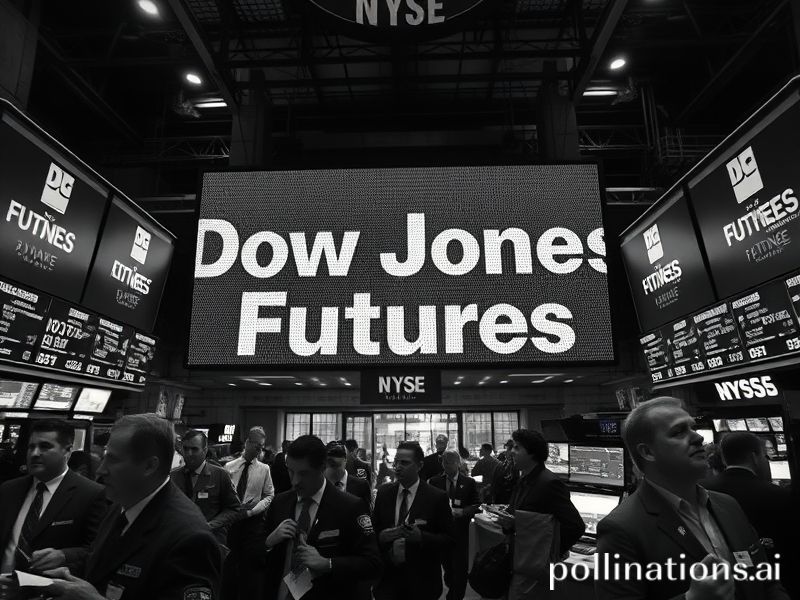Dow Jones Futures: The Stock Market’s Crystal Ball and Why the World Can’t Look Away
# **Dow Jones Futures: The Stock Market’s Crystal Ball and Why the World Can’t Look Away**
In the vast, chaotic digital bazaar of the internet, trends come and go faster than a Bitcoin price tick. But one trend that’s been consistently grabbing headlines and sparking watercooler chats (or should we say, Slack threads?) is **Dow Jones Futures**. Yes, we’re talking about the stock market’s version of a fortune teller—predicting the future of the economy based on pre-market trading. But why is this financial crystal ball suddenly trending globally? Let’s dive in.
## **The Cultural Context: When Finance Meets Internet Culture**
First, let’s set the scene. The Dow Jones Industrial Average (DJIA) is like the OG of stock market indices, a who’s who of 30 blue-chip companies that represent the broader economy. Futures, on the other hand, are financial contracts that allow traders to bet on the future price of an asset—like a high-stakes game of “Will it or Won’t it?” But why is this suddenly everyone’s favorite topic?
Enter **internet culture**. The rise of retail investing, fueled by apps like Robinhood and the infamous GameStop short squeeze, has turned finance into a spectator sport. Suddenly, everyone’s an armchair economist, dissecting market trends like they’re analyzing the latest Netflix show. And Dow Jones Futures? It’s the ultimate teaser trailer for the market’s opening act.
## **The Social Impact: From Wall Street to Your Timeline**
The trendiness of Dow Jones Futures isn’t just about numbers on a screen. It’s about the democratization of finance. Social media platforms like Twitter, Reddit, and even TikTok are buzzing with discussions about market predictions, meme stocks, and economic forecasts. The barrier to entry for investing has never been lower, and with that comes a newfound curiosity about what makes the market tick.
But here’s the kicker: Dow Jones Futures aren’t just for Wall Street insiders anymore. They’re a cultural barometer, a way for people to gauge the economic mood before the market even opens. It’s like checking the weather before you leave the house—except instead of rain, you’re predicting a market storm or a sunny rally.
## **Why It Matters: The Ripple Effect of Market Predictions**
So, why should you care about Dow Jones Futures? Because they have a ripple effect that extends far beyond the trading floor. A strong futures market can signal confidence in the economy, boosting consumer sentiment and spending. Conversely, a weak futures market can spark panic, leading to sell-offs and economic uncertainty.
In a world where news cycles move at the speed of light, Dow Jones Futures offer a glimpse into what’s coming next. They’re the financial equivalent of a spoiler alert, giving investors, businesses, and even casual observers a heads-up on potential market movements. And in today’s interconnected world, that’s more valuable than ever.
## **The Bottom Line: Why Dow Jones Futures Are Here to Stay**
Dow Jones Futures are trending globally because they represent the intersection of finance, technology, and culture. They’re a reflection of our collective curiosity about the economy, our desire to stay informed, and our love for a good financial drama. Whether you’re a seasoned investor or just dipping your toes into the market, Dow Jones Futures offer a window into the future—one pre-market trade at a time.
So, the next time you see Dow Jones Futures trending, remember: it’s not just about the numbers. It’s about the story they tell, the conversations they spark, and the role they play in shaping our economic narrative. And in the digital age, that’s a trend worth watching.







